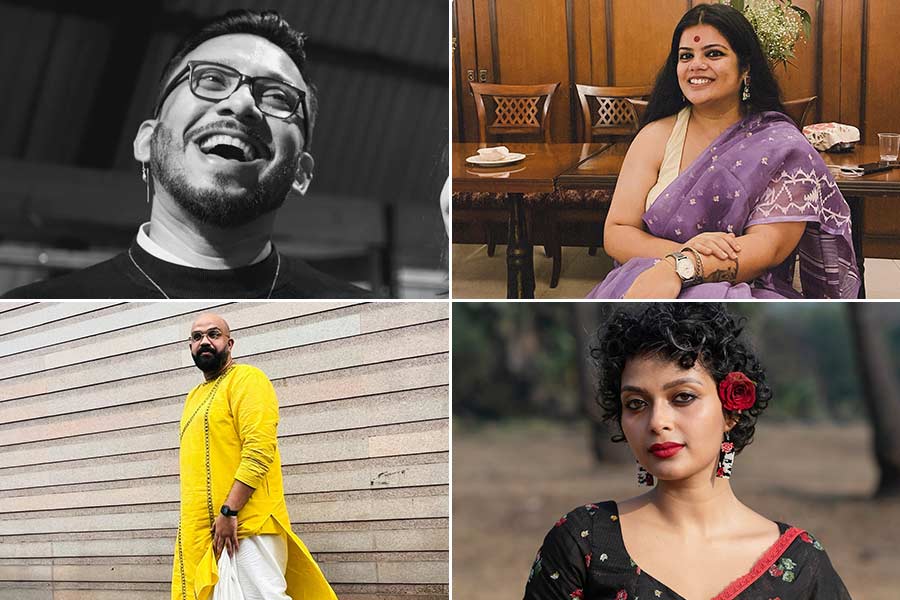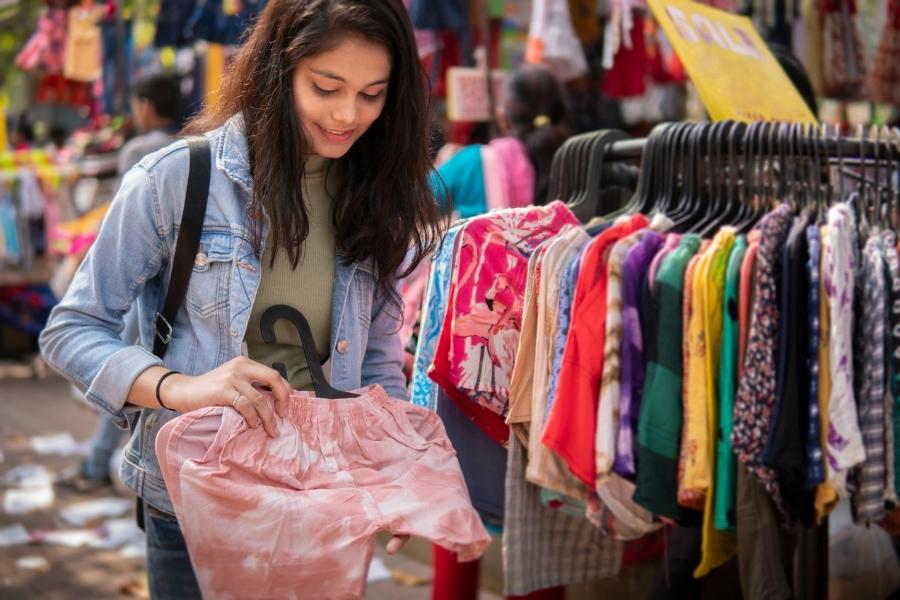In recent years, sustainable fashion has emerged as a powerful counterpoint to the wasteful patterns of fast fashion, urging consumers to slow down and make conscious choices. From upcycling heirloom pieces to using handwoven fabrics, designers are reimagining fashion as an ethical, enduring, eco-friendly craft.
Ahead of World Earth Day, April 22, My Kolkata spoke to Kolkata couturiers like Sujata Biswas, Parama Gangopadhyay, Abhishek Roy and Navonil Das, who are spearheading this shift with practices that blend tradition and mindful innovation.
Redefining sustainability as mindful fashion
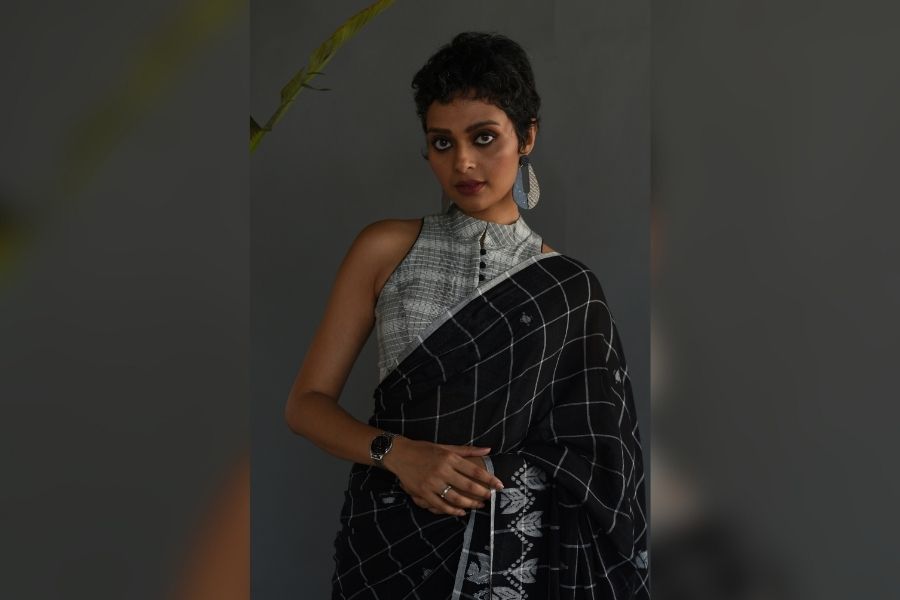
Suta co-founder and sustainability enthusiast Sujata Biswas prefers calling her label ‘mindful’ rather than sustainable. “If you want to sell more of your products, then you cannot call yourself sustainable,” she said.
Her brand balances commercial viability with environmental sensitivity by rewarding customers with coupons for sending in old saris which are repurposed into packaging material.
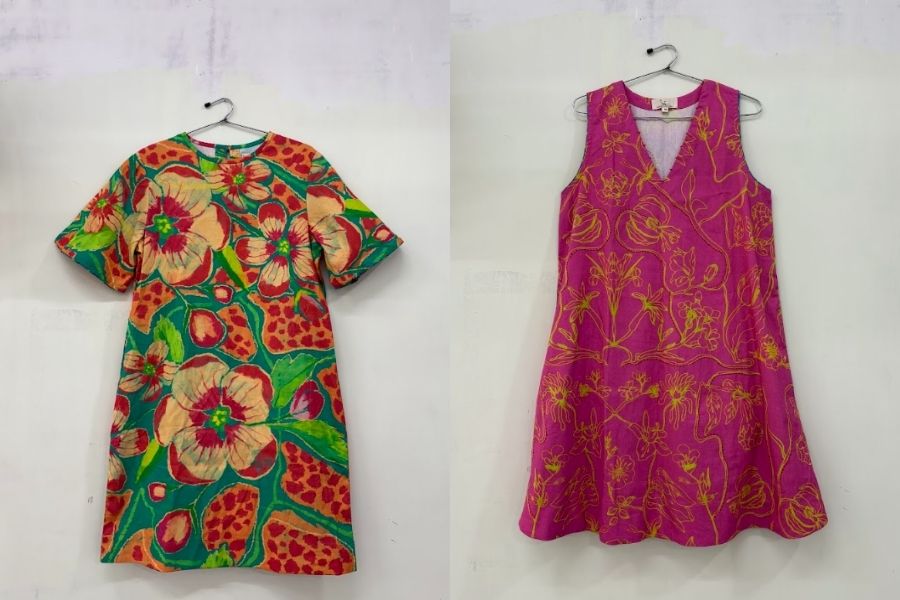
Encouraging upcycling and personal style, she pointed out the versatility of garments like dupattas and saris, which can be transformed into dresses or blouses. She shared that Suta’s upcoming collections will include cotton embroidered dresses, kurtas, and co-ord sets — stylish, breathable, and perfect for the sweltering summer heat.
Slow fashion requires a certain amount of disposable income
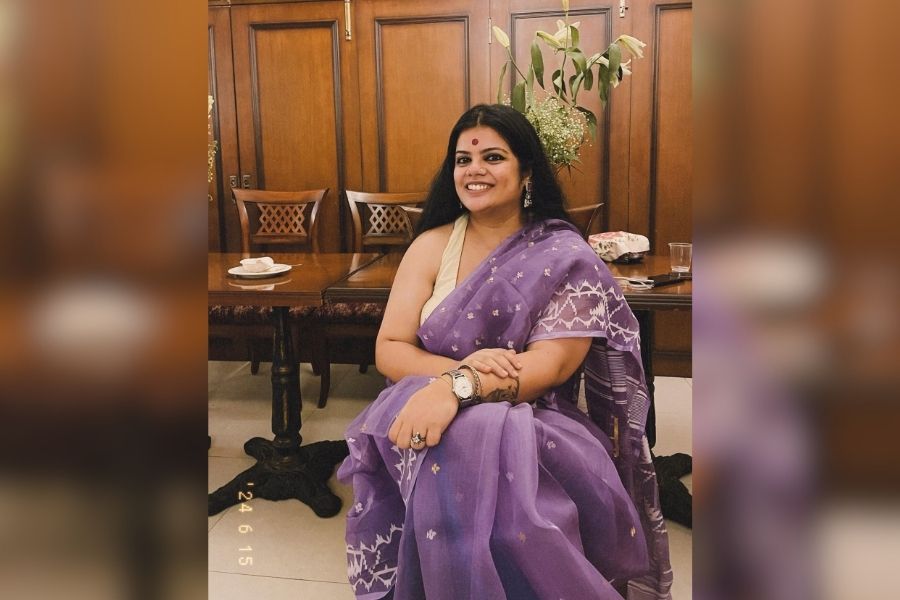
Kolkata-based couturier Parama Gangopadhyay talked about the luxury quotient of sustainable fashion.
“One handmade Jamdani sari would take 20 days to make. And I am okay with that slow thing because there is no hurry. However, a huge part of the Kolkata market only looks at clothes that are budget-friendly, which is a sad thing,” said the founder of the fashion label, Parama.
“I don’t blame them, because you have to generate that kind of an income to buy semi-luxury goods. This is not a necessary item,” added the couturier.
Gangopadhyay also highlighted the environmental impact of mass-produced power loom fabrics, adding that her brand only makes use of hand-woven fabrics. She shared that her brand is soon launching a new collection of jamdani-printed tunics, skirts, waistcoats and blazers.
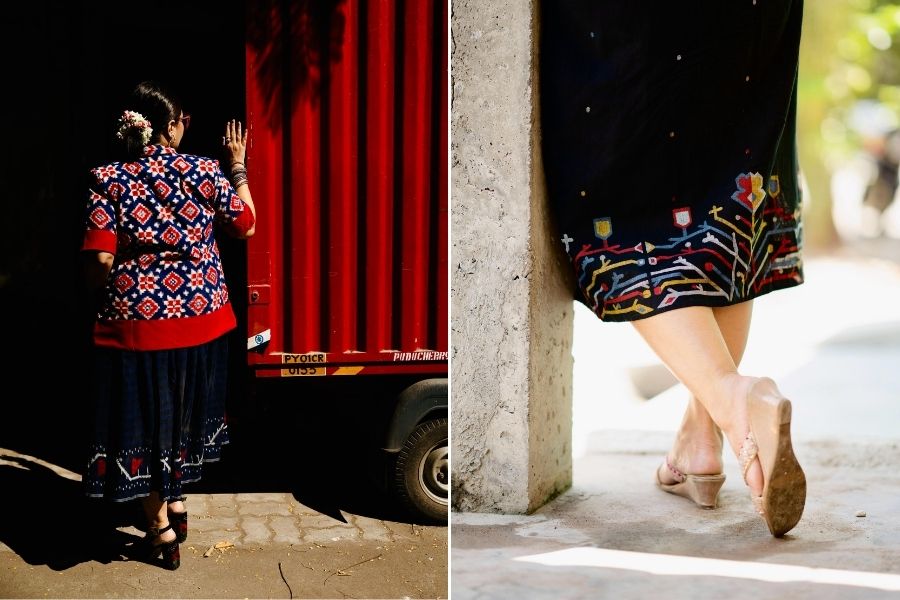
Gangopadhyay added that recycling is just one of the ways of promoting sustainable fashion. Versatile styling is another. The kaftan blouses from her label, often made from extra cloth, can be paired with saris as well as jeans.
Sustainability begins with a strong business model

For Navonil Das of Dev R Nil, sustainability extends beyond textiles to include the business model itself. “You have to be responsible and profitable to provide employment,” he said, underlining the importance of long-term viability.
“Whether you will be there in 20 years, whatever you have started, will you be following it through? If you vanish into thin air after a few years, your efforts are of no use,” said Das.
Dev R Nil uses organic textiles and encourages consumers to buy less but style more, said Das.
An emotional connect with clothes facilitates sustainability
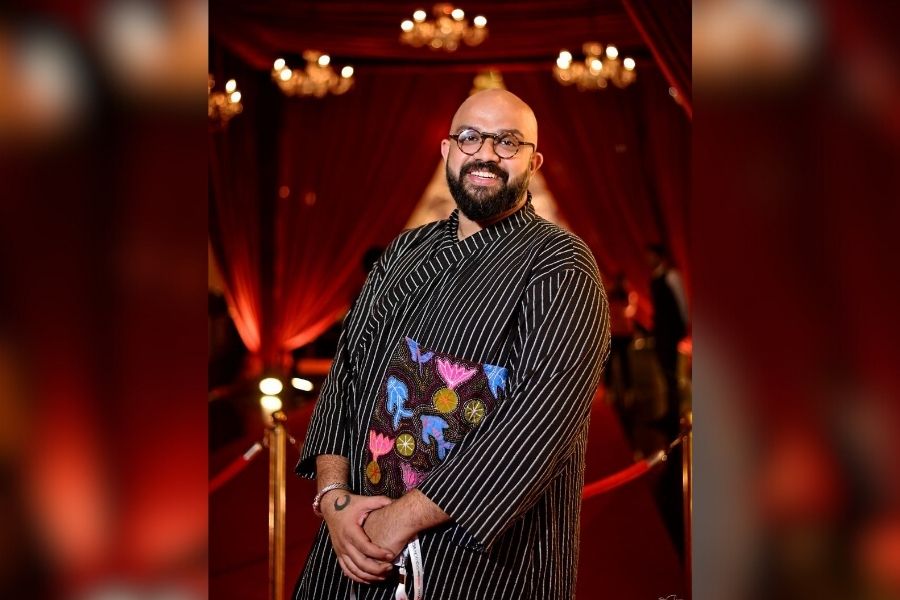
Designer Abhisek Roy, founder of Roy Calcutta, believes sustainability is still a digital-first concept in India. “Being a good buyer is very important. The consumer and designer must both be aware,” he said. His label often customises pieces from clients’ heirlooms, adding an emotional layer to sustainability.
While he acknowledges the dominance of fast fashion, he sees a growing awareness among consumers. Like Biswas and Gangopadhyay, the couturier acknowledged that sustainability comes at a cost and therefore it has still not overtaken the Indian market in the way fast fashion has.
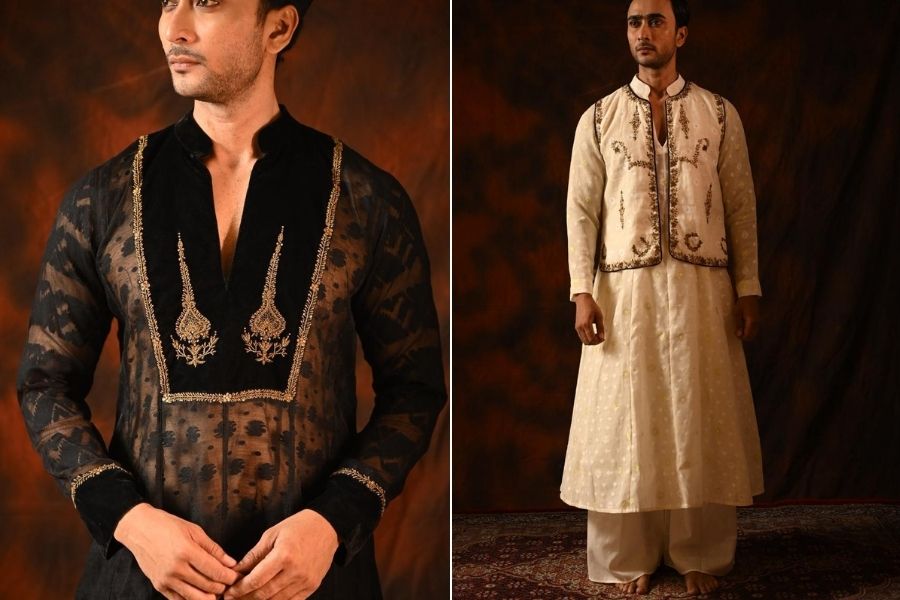
Roy’s most recent collection — crafted from repurposed Jamdani saris — was launched at Lakmé Fashion Week 2025, reflecting his label’s commitment to mindful design and heritage revival.
